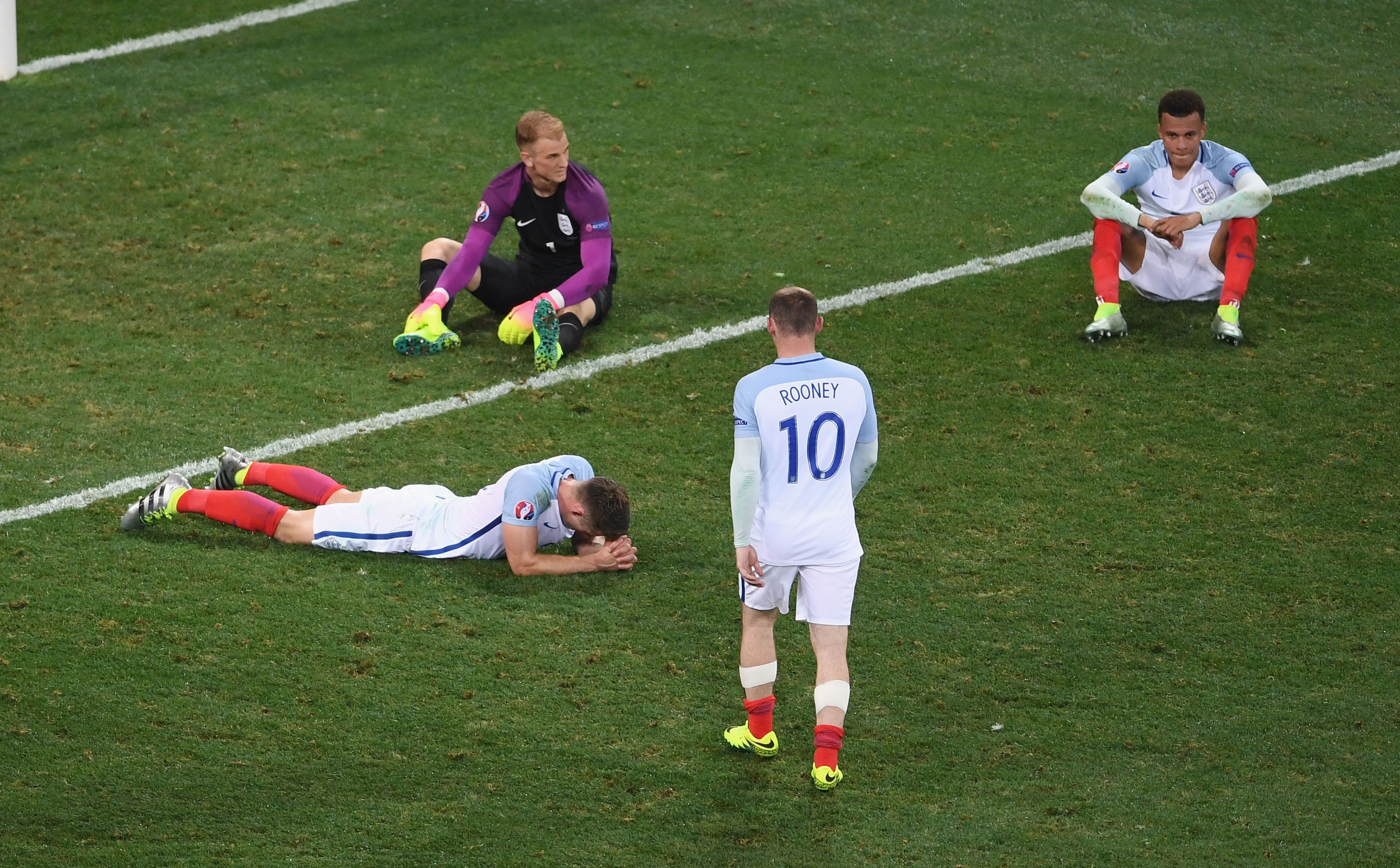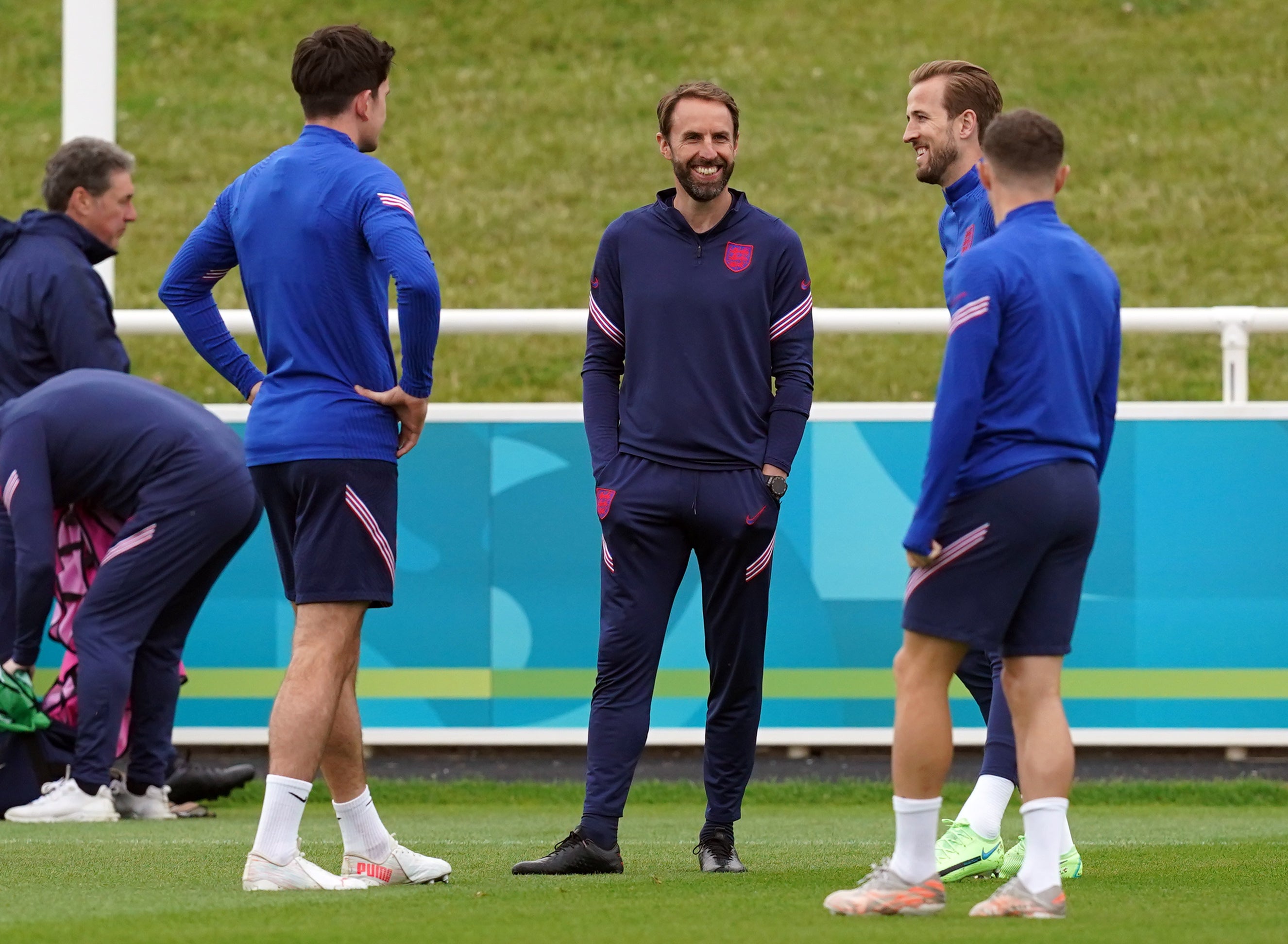England confident but not complacent ahead of biggest Euro 2020 step yet
England face Ukraine conscious of not thinking too far ahead, but are equally appreciative of the opportunity that is in front of them
It is a line that Gareth Southgate delivers with such effusiveness that you can tell he’s already said it to the players.
“There’s a danger when you hold something in your hands in life – when you’ve got half of something – you don’t want to lose the half, rather than reach out for the whole. We’ve got to take the next step forwards.”
It’s just that the next step of the tournament, a quarter-final against Ukraine, isn’t as intimidating as Germany. That isn’t arrogance or complacency. It’s reality. There is no denying that going out to Ukraine would be an embarrassment for England, especially after Tuesday. It is also something Southgate and his staff are especially conscious of.
In the afterglow of Germany, the England players went to the blue glow of their screens, as they all watched the Ukraine game on the way back from Wembley. Some – just like everyone watching at home – were dismayed that Artem Dovbyk’s goal had denied them penalties. Others were impressed at the resilience of Ukraine, although wondered about the effect of extra time. All felt that England are a better team.
The main objective of Southgate and his staff in the last few days has been to ensure that justified confidence doesn’t go too far. Some of the England squad had a session with the psychology team the day after Germany, and there was also a general meeting where the message was very much to move on.
“It’s not easy because you all get lovely messages and if they’re reading the papers or watching television I’m sure there’ll be lots to enjoy for them,” Southgate said.
It was why he made such a point of describing the aftermath of that game as “a dangerous moment” amid his own celebrations and the nationwide euphoria.
He knows the job is “half” done. He knows there’s something bigger to grasp, and that there is the danger of a slip. He knows there is a potential world where England beat Germany and immediately fall to more moderate opposition in Ukraine, because of the psychological drop-off, and perhaps even presumptuousness.
It has happened to big teams before. It’s happened in this very tournament. Recent matches should really reshape the thinking about how these games will go, not to mention recent European Championships.
“We saw that with France against Switzerland,” Southgate says. “There’s any number of lessons in a tournament about how things can turn so quickly. The differences between the teams in Europe are really tight. You see it whenever there is a round of qualifying fixtures. Ukraine got a draw in Paris in March, we’ve seen it in the European Championships. It’s why Greece won it. It’s why Denmark won it.
“It’s about peaking, it’s about reacting in the right way when things are going wrong. It’s controlling the things you can and not being distracted by so many things that can go against a team and tear a team apart from within at times. World Cups have tended to go a bit more with form in the main and European Championships have been a lot more random. We obviously haven’t really achieved that with great success! I don’t know if that’s because it’s random or it’s gone to form. Either way, we haven’t done very well with it.”
Southgate is describing situations with such definition that it’s difficult not to think he is referring to a specific campaign: Euro 2016. That would be fair, since it is the tournament that has shaped Southgate’s tenure more than any other. He and his staff have commissioned many major studies to help England achieve glory, but one of the first was on that game against Iceland and what went wrong. Almost everything Southgate said applies to it.

England didn’t react well. They could barely control the ball, let alone anything else. They got distracted. It was just difficult to tell whether the result was random or to form. It was certainly a logical follow-on from so many England failures over the previous decade, if also an extreme.
Southgate says he doesn’t like talking about Iceland because of his massive respect for Roy Hodgson. He still admits “it ended up as a reference for us in terms of seeing anxiety when things don’t go to plan”. His assistant, Steve Holland, has been much more expansive on it. Back in 2017, he said he was watching it on holiday and remembers thinking “bloody hell, they have gone”.
That realisation was the reason for setting up a military boot camp with the marines in Southgate’s first months. The staff wanted to condition clearer thinking under pressure, to get the players to think about these things.
One exercise involved having to go through a tube under water, where you couldn’t see. There was a marine either side so it was completely safe, but few felt in any way comfortable. They just had to work their way through. The idea was to relate the memory of that back to football, so any setbacks don’t seem so cataclysmic, so that the players can work it through rationally.
Southgate has referenced this in meetings, and spoke out in a chat with media. “When you’ve talked those scenarios through as a group – which we did before the last game in particular – then everybody knows how we are going to deal with it. They can make eye contact on the pitch and they are better prepared for those moments.”

Southgate said he won’t specifically mention Iceland, but then Ukraine are much better than Iceland. They are a hugely promising young team who play highly proactive football, and will take the game to England. They may even be able to outrun England, given they’ve already run almost 50km more than them in this tournament.
Those who know the team well say people shouldn’t be too guided by the exertions of the extra time against Sweden. Andriy Shevchenko will have his team ready. That team will also have the support of Rome, given the manager’s status as one of the most revered players in the history of Serie A.
That will be something else that just changes the circumstances for England, since it is the first game out of Wembley, but there might also be the rhythm of the game. Ukraine have a good record against top sides, as Southgate alluded to with their draw against France, but there was also a win over Portugal in qualifying.
Shevchenko and his staff do a lot of work on looking to pick out the holes in teams with structures like England. They have players coming from everywhere, such as with Oleksandr Zinchenko’s goal against Sweden, or Ruslan Malinovskyi moving in from wide.
While Southgate’s approach is specifically built for the knockout stages, there is the argument that this is a game to step up. That would fit with his thinking on the whole tournament, though. Jadon Sancho will come in, and England will return to four at the back. They will likely play higher up the pitch.
“We’re not in any way, shape or form complacent,” Southgate said. “We’ve got to stay composed, but not fearful. We’ve got to be on the front foot.”
They’ve got to grab it all. It is there for them. That just involves taking a step some might have overlooked.
Ukraine v England, Saturday, BBC One from 7pm, kick-off 8pm
Join our commenting forum
Join thought-provoking conversations, follow other Independent readers and see their replies
Comments
Bookmark popover
Removed from bookmarks